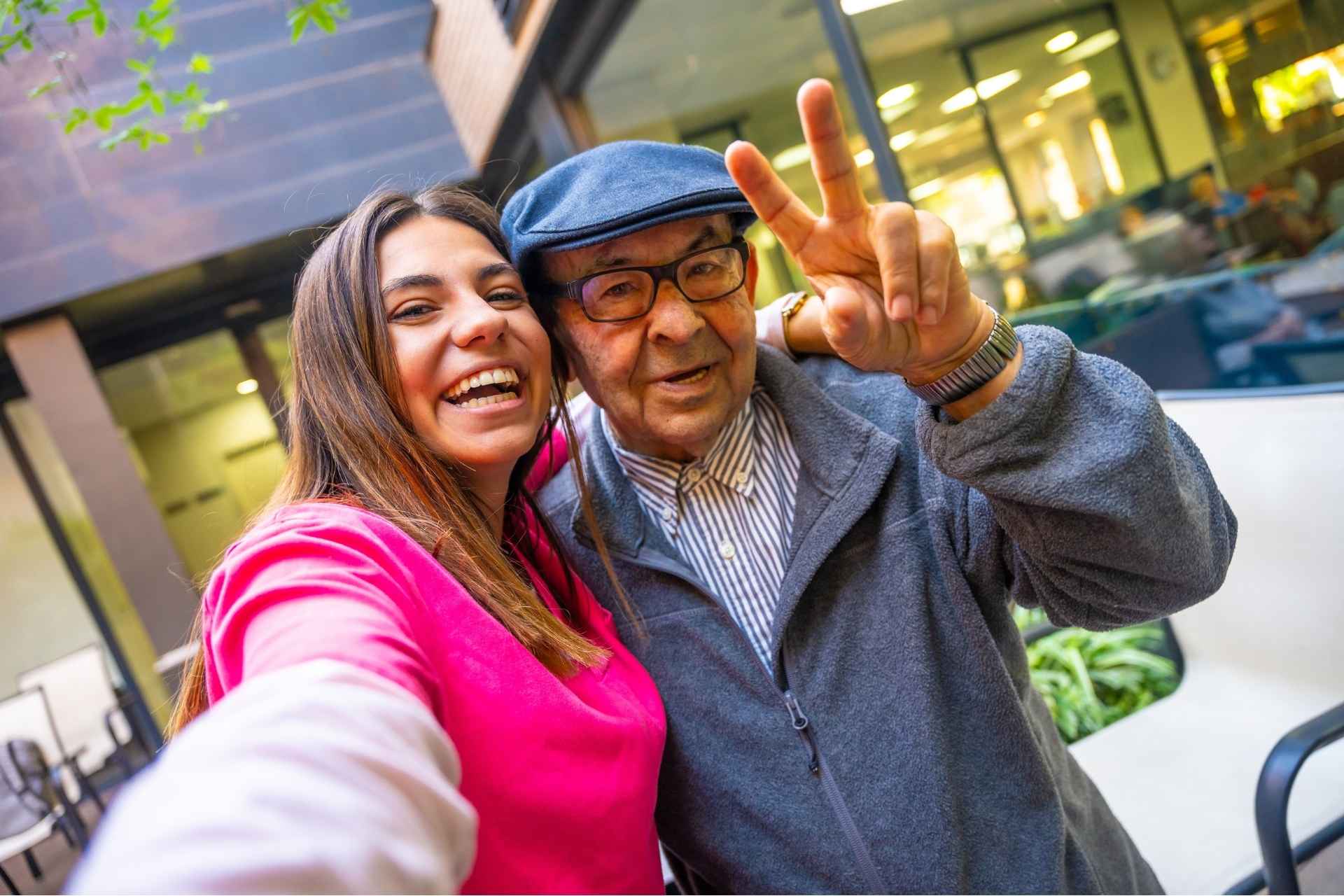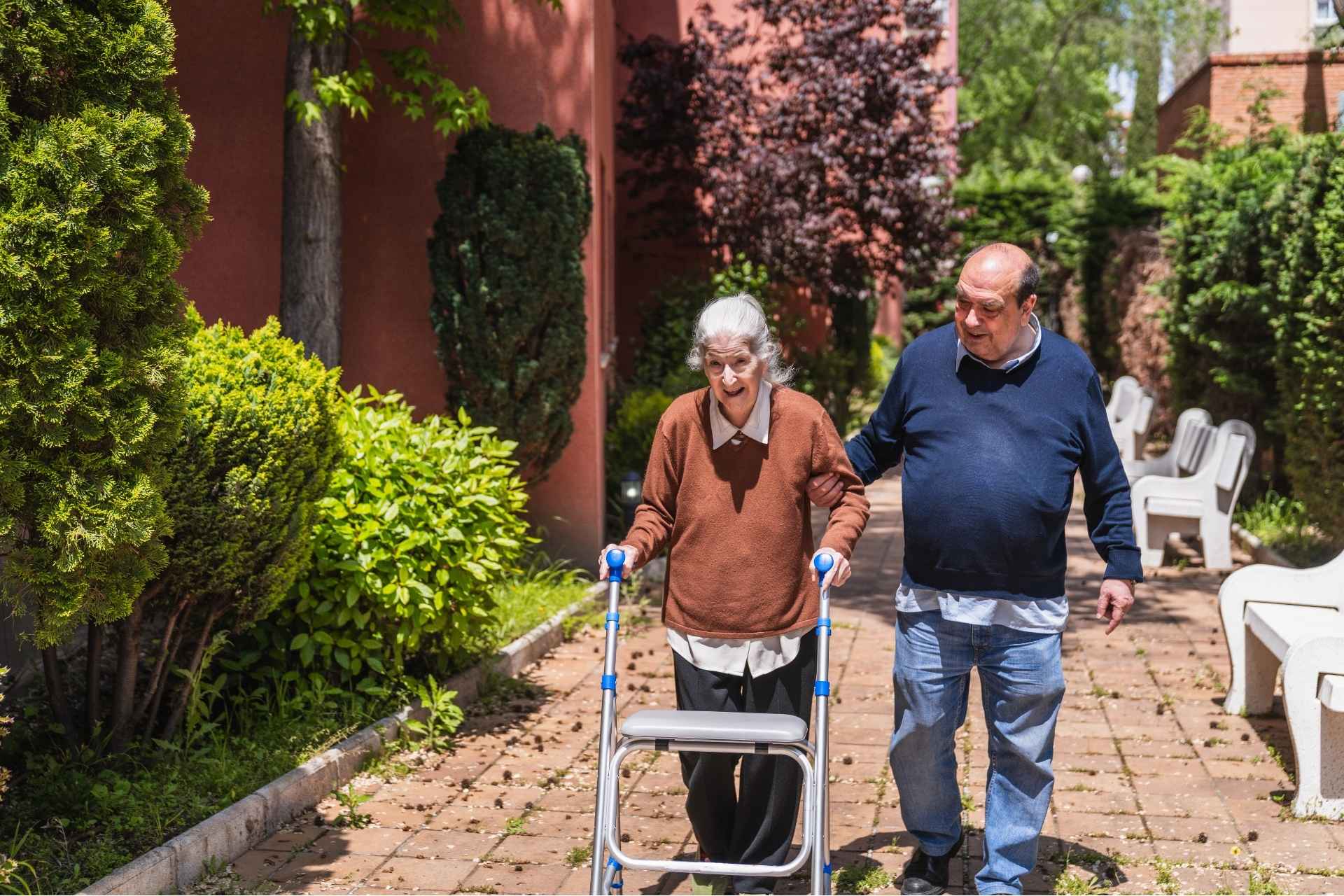A Guide for Spouses and Caregivers
Taking care of someone with memory-related challenges is an act of love, patience, and strength. But it can be overwhelming, even if you’re the spouse or closest family member of the person needing care. Moments of joy and connection can often be overshadowed by stress, fatigue, and even loneliness.
About 11 million Americans provide unpaid care for someone with Alzheimer’s or another dementia, according to the Alzheimer’s Association.
So, who cares for the caregiver?
Think of it like the airplane oxygen mask scenario. You need to put your own mask on before helping others with theirs. Here’s some gentle advice on how to do just that.
1. Recognize the Challenges of Caregiving
Let’s start by acknowledging the obvious: caregiving is a tough gig. From managing medications to arranging appointments and keeping spirits high, your to-do list probably feels like it never ends. And while love is your driving force, stress is often an uninvited passenger.
Here’s a reminder to cut yourself some slack. One survey found that 60% of caregivers experience high levels of emotional stress. Your feelings are valid. Acknowledging the challenges is the first step to tackling them.
2. Build a Support Network
The saying “it takes a village” doesn’t just apply to raising kids. Being a spouse or family caregiver often feels isolating, but you don’t have to do it alone. Talk to friends, family, or even neighbors who can help in small, meaningful ways. Maybe someone can bring over a home-cooked meal, pick up groceries, or just sit and chat with you over coffee.
3. Prioritize Your Well-Being (No, Really!)
Self-care? Who has the time for that? But here’s the thing: neglecting your own mental and physical health can lead to caregiver burnout. Finding even small ways to care for yourself matters.
Blocking off time for a hobby, exercise, or even a proper nap can do wonders for your resilience. Similarly, regular check-ins with your own doctor and maintaining healthy routines (hydrating, eating well, sleeping enough) aren’t luxuries, nor are they selfish. They’re necessities.
4. Find Help When You Need It
Sometimes, the best way to care for your loved one is to know when to ask for extra help. Memory care communities provide specialized support that prioritizes the well-being of the individual while relieving pressure on their families.
These communities are tailored to meet the unique needs of those with cognitive impairments while giving you peace of mind that your loved one is safe, secure, and engaged.
Think of memory care as an extension of your caregiving – that “village” we mentioned earlier. Staffed by trained professionals, these communities often provide everything from structured activities to personalized care plans.
5. Create Moments that Matter
Even in the most difficult seasons, caregiving can be about connection. Small moments like reminiscing over old photos, listening to their favorite music, or simply enjoying the sunshine together can make an enormous difference – for both of you.
Simple, shared experiences strengthen your bond and remind you why this role matters so deeply.
7. Know It’s Okay to Feel
Guilt. Frustration. Sadness. These emotions might hit you hard some days, and that’s completely normal. But here’s the truth: you’re doing your best. You love deeply, and you’re making choices out of care and compassion. That’s remarkable (and deserves acknowledgment).











